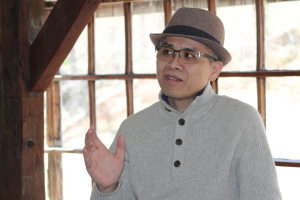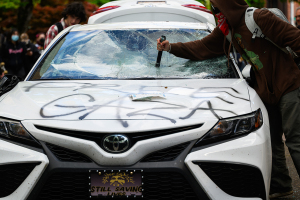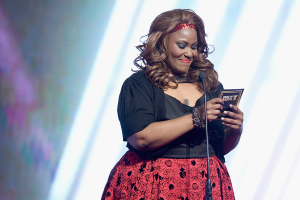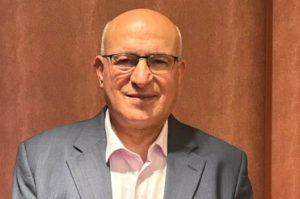Christians Continue to Be Undermined by Mainstream Media
As a journalism student at Northwestern University's Medill School, I have learned how the press can affect public perception of certain societal groups. I began to investigate how news coverage has perpetuated anti-Christian stereotypes that do not reflect the Christians I know or who I am as a follower of Jesus.
Since journalists are the gatekeepers of public information, the way they have portrayed Christ-followers has undoubtedly influenced Americans' understanding of Christianity. Twenty-five percent of the respondents to a nationwide Barna survey in 2010 said they weren't able to remember any positive contributions from Christians during recent years.
Media bias against Christians is not new. A study published in the Journal of Media and Religion points to partiality between 1980 and 2000 against certain Christians by examining how nightly television network news broadcasts reported on "fundamentalist" Christians. The study found that fundamentalists were reported in a "consistent, mildly negative manner."
Additional research is necessary to holistically investigate what kind of tone the 21st-century press has taken toward Christians, but on the surface, the reporting appears increasingly more negative than positive.
A prime example is coverage of Westboro Baptist Church and its many anti-gay protests as typical of the church. Westboro seems to go against Christian principles. Its members appear to preach that we should hate people who act upon same-sex attraction, when in reality the Bible teaches we should love them as human beings who are created in God's image.
Although journalists must report on anomalies like Westboro because unusual events define news, why do groups of radicals like Westboro seem more well-known in our country than faith-based nonprofits like International Justice Mission, which tries to live out God's command for justice by fighting human trafficking and enjoys wide bipartisan support?
In his essay in a 1990 book, Mike Maus argues that "the secular media" does not view evangelical Christians in particular as meriting coverage unless "they misbehave, act politically, or stand against cultural change."
Evangelicals are not the only ones who the media portrays in a negative light, though. Think about how much attention journalists have given to scandals within the Catholic Church. These wrongdoings are definitely newsworthy, but sexual misconduct only applies to a handful of Catholic priests.
I know plenty of Christians who tangibly demonstrate God's love by serving the needy and the oppressed as He commands us to do throughout the Bible. A Barna study found that the Christian community gave an average of $1426 to nonprofits in 2007, compared with an average of $905 from non-Christians. What happened to stories about people in the former group, who gave so much of themselves to help others?
If additional research were done, the press might find that outcomes of families of church-going, born-again parents are significantly better than the national norm. Research by W. Bradford Wilcox, a University of Virginia sociologist, shows that "active conservative Protestants" who regularly attend church are 35 percent less likely to divorce than Americans without any affiliation. Other experts have found that children raised in a traditional family structure experience better physical health and have fewer psychological problems. What's more, they are less inclined to go to jail and more likely to graduate from high school and college.
The media has not adequately reported about these positive features of Christian life.
Members of the press have even admitted a bias against people who back traditional marriage. Former Washington Post ombudsman Patrick Pexton writes that "many journalists have a hard time giving much voice to those opposed to gay marriage." This slant shows up in unfair reporting about Christians.
Other experts have contended that journalists tend to lack sufficient experience with religion to give it enough quality coverage. According to a 2007 survey from the Pew Research Center for the People and the Press, only eight percent of national journalists and 14 percent of local journalists indicated attending a place of worship every week. This suggests that many members of the press might need to become more involved with religion so they can understand its nuances and report on it well. Stereotypes perpetuated about specific faiths may stem from insufficient religious education and experience.
It is hard to find evidence from the last 15 years showing how involved journalists are with spiritual matters. More scholarly research is needed in order to examine how their religious affiliations affect their reporting. News organizations must encourage editors and reporters to educate themselves about the beliefs of different types of Christians and members of other faiths. This way, journalists might be able to avoid propagating negative religious stereotypes in their stories.
Ultimately, the press must aim for more balanced coverage of Christians. Journalists need to shine light on both sides of the Christian community, highlighting not only people who misrepresent Jesus's name but also focusing on the many believers who faithfully go forth as Christ's hands and feet.




























